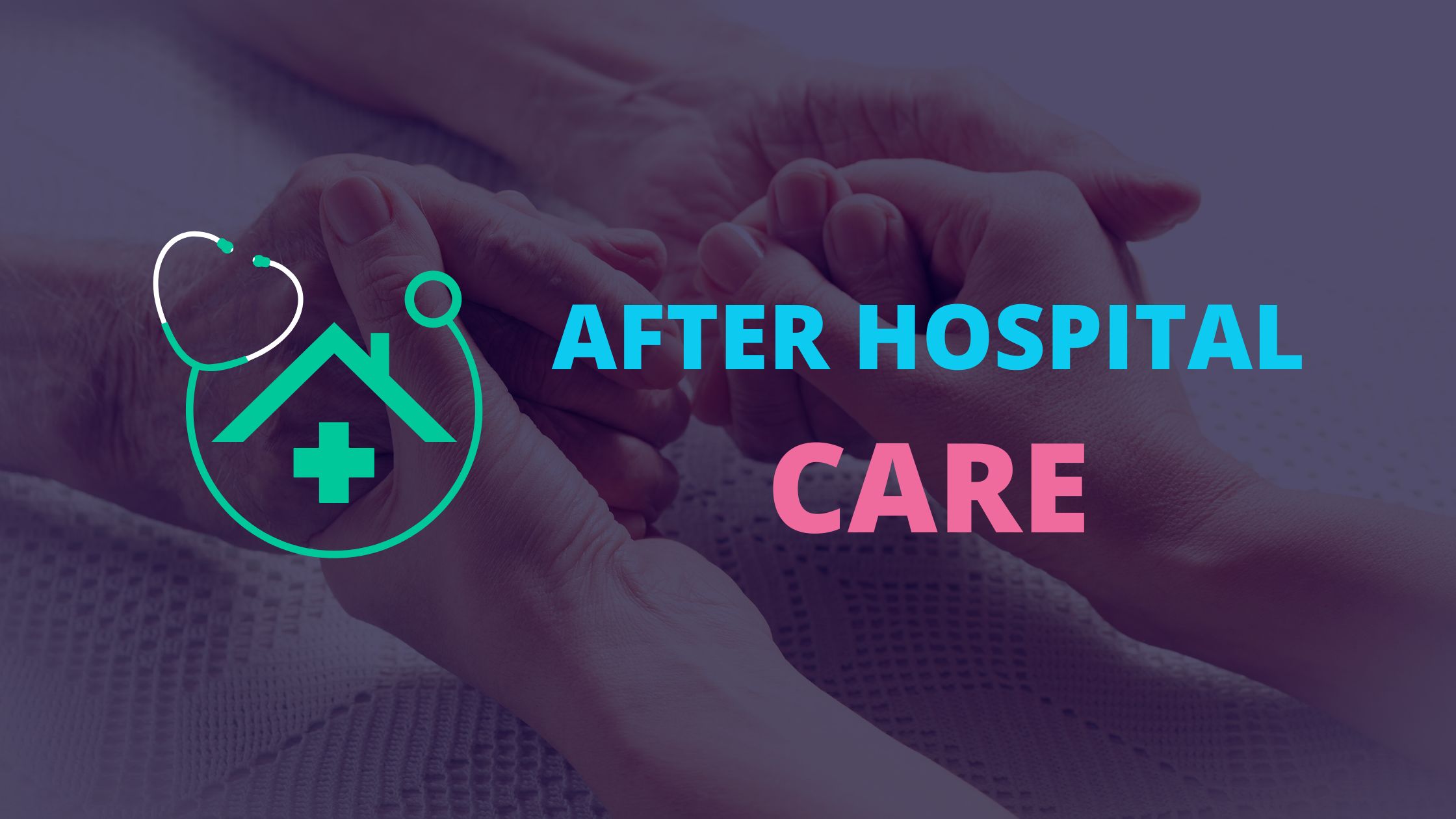After-Hospital Care: Everything You Need To Know
After hospital care, also known as post-hospital care or transitional care plays a vital role in ensuring a smooth transition from hospital to home for patients. Whether recovering from surgery or managing a chronic condition, proper post-discharge support can significantly enhance recovery outcomes and overall well-being. In this guide, we’ll explore what it entails, its importance, and how it can help you or your loved one during the recovery process.

What is After Hospital Care?
Definition: Post hospital care refers to specialized services designed to support individuals recovering after hospitalization. This type of care focuses on facilitating a smooth transition back home while ensuring the patient's health and safety.
Differences from Traditional Home Care: Unlike traditional home care, which offers a broad range of services, post hospital care is tailored specifically to address recovery needs. It often includes skilled nursing care, health monitoring, and assistance with daily living activities to help patients regain their independence.
Importance of Post-Discharge Support: Many patients may experience challenges when returning home after a hospital stay. Professional assistance can provide the necessary support to monitor health, manage medications, and prevent complications, leading to a smoother recovery process.
Why Choose After Hospital Care?
Choosing post hospital care provides numerous benefits that can significantly improve recovery experiences:
- Enhanced Recovery: Personalized care from trained professionals can lead to quicker and more effective recovery.
- Continuous Monitoring: Regular health assessments can catch potential issues early, reducing the risk of readmission.
- Emotional Support: Professional caregivers offer emotional reassurance, helping to ease anxiety for both patients and their families during the recovery period.
- Peace of Mind for Caregivers: Family members can feel more at ease knowing that their loved one is receiving the care they need from qualified professionals.
Who Needs Post Hospital Care?
After hospital care is ideal for a variety of individuals, including:
- Individuals Recovering from Surgery: Tailored support ensures proper healing and rehabilitation.
- New Mothers Post-Childbirth: Specialized care assists with postpartum recovery and provides support in infant care.
- Patients with Chronic Conditions: Ongoing assistance helps stabilize health after hospital stays related to chronic illnesses.
- Seniors Requiring Ongoing Assistance: Elderly individuals may need extra help adjusting back to home life after hospitalization.
Which Services Are Included in Post Hospital Care?
post hospital care is designed to help individuals recover from a hospital stay and transition smoothly back home. The specific services included in this care can vary depending on individual needs and the type of care provider. However, common services may include:
Skilled Nursing Care
- Medication management: Assisting with medication administration and monitoring.
- Wound care: Caring for wounds, incisions, or dressings.
- IV therapy: Administering intravenous fluids and medications.
- Tracheostomy care: Managing a tracheostomy tube and suctioning.
Therapy Services
- Physical therapy: Helping patients regain strength, mobility, and function.
- Occupational therapy: Assisting patients with daily living activities, such as dressing, bathing, and meal preparation.
- Speech therapy: Helping patients improve communication skills, swallowing, and language abilities.
Personal Care Services
- Bathing and grooming: Assisting with personal hygiene tasks.
- Dressing: Helping with dressing and undressing.
- Meal preparation: Preparing and serving meals.
- Light housekeeping: Assisting with basic household chores.
Companionship and Support Services
- Socialization: Engaging patients in activities and providing companionship.
- Transportation: Arranging transportation for appointments or errands.
- Medication reminders: Reminding patients to take their medications as prescribed.
- Emotional support: Providing emotional support and encouragement.
How to Choose an Post Hospital Care Provider?
Choosing the right provider for after hospital care is crucial for ensuring a smooth recovery experience. Here are key steps to consider:
Assessing Individual Care Needs and Preferences:
- Evaluate the specific needs of the patient based on their medical condition and recovery goals. Consider personal preferences, such as the desire for companionship or specific dietary requirements.
Evaluating Provider Qualifications and Experience:
- Research the credentials of potential providers. Look for qualifications such as certifications in nursing or home health care. Experience with specific medical conditions can also be a significant factor.
Checking References and Reading Reviews:
- Reach out to former clients or their families to gather insights into the provider’s performance. Online reviews can also provide valuable information about the quality of care.
Important Questions to Ask During the Selection Process:
- Prepare a list of questions to ask potential providers, including:
- What types of services do you offer?
- How do you ensure caregiver reliability and continuity of care?
- What is your protocol for emergencies or changes in the patient’s condition?
- Can you provide a written care plan tailored to the patient’s needs?
- Prepare a list of questions to ask potential providers, including:
How Much Does After Hospital Care Cost?
Understanding the costs associated with after hospital care is essential for planning:
- Typical Costs Overview: Post hospital care costs can vary widely based on location, services provided, and care needs. On average, families may expect to spend between $20 to $50 per hour for in-home care services.
- Insurance Coverage: Many insurance plans may cover some aspects of after hospital care, including skilled nursing and therapy services. It’s important to check with your insurance provider for specific coverage details.
- Budgeting for Long-Term Care: Planning for transitional care can involve considering various funding options, including private pay, insurance, or state assistance programs. Being proactive in budgeting can help alleviate financial stress during recovery.
After hospital care is an invaluable resource for enhancing recovery and providing peace of mind for patients and their families. By choosing the right support, individuals can transition home with confidence, knowing they have the assistance they need.
To learn more about after hospital care and explore additional resources, we invite you to check out our related blog posts.
